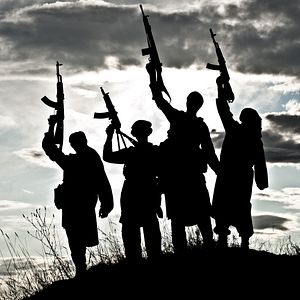The death of Mullah Mansour, the Afghan Taliban’s former leader, on Pakistan’s soil has only earned more infamy and distrust for the country. Mansour’s demise came at a time when Pakistan was trying to convince the international world of its supposed genuine effort in pursuit of regional peace and stability.
For the last two years, the Pakistani military has made huge efforts to build the perception that it was finally abandoning the use of militant groups as a tool of domestic and foreign policy. On Pakistan’s part, the pretext of abandoning non-state actors doesn’t just end on the Afghan front; it has other regional and domestic contours, where state-level patronage continues.
In 2014, after the devastating attack against schoolchildren at an army school in Peshawar, Pakistan formulated a 20-point counterterrorism strategy called the National Action Plan (NAP) to deal with all sorts of terror groups. The government had resolved to deal with militant groups with an iron fist. The rhetoric, however, did not translate into action: Apart from the Pakistani Taliban, who had turned their guns on the state, not a single major terrorist or sectarian group has been touched by the state.
To feed into the pretext of giving up on non-state actors, Pakistan launched a much-awaited military operation in Punjab about a month ago. The operation, however, has not gone beyond the military’s barracks. To satisfy the media’s curiosity, some hardened criminals were confronted in the southern districts of the province, where a large number of sectarian groups, such as Lashkar-e-Jhangvi (LeJ) and Sipah-e-Sahaba Pakistan (SSP) are based. Beyond these criminal groups, which are just the tip of the iceberg when it comes to the militant challenge in Punjab, everything remains intact.
Furthermore, a few weeks ago, Punjab’s law minister, Rana Sanaullah, while giving an interview to the BBC, said that it is impossible for the government to take any action against LeJ or Lashkar-e-Taiba (LeT) because the state itself has remained involved with them. “How can you prosecute a group with whom the state itself has been involved with?” said Sanaullah. LeT, a militant group based in Pakistan, has reportedly set up Sharia courts in the country and openly held funeral prayers for the deceased Afghan Taliban leader, Mullah Mansour.
On May 29, The Nation, an English-language newspaper in Pakistan, published an unusual editorial criticizing the government for not cracking down on these militant groups. “It doesn’t matter what Raheel Sharif [the military chief] says or how resolute he looks, it doesn’t matter what our ambassadors say or how eloquently they say it; unless these extremist groups masquerading as legitimate parties are shut down, the government, in the words of the U.S. Senate, Pakistan remains ‘untrustworthy.’”
The government’s plan to regulate and register madrassas (religious schools) under the NAP has been pushed back by these groups. More children are enrolling in madrassas than secular private or government schools. What is more worrying is that a large part of the Pakistani society either approves or supports the actions of these groups. The violence against minority Muslim sects, particularly the Shia, is not considered a crime by conservative Sunni Muslims.
Pakistan’s NAP—or, more appropriately, the “naïve” action plan—will inevitably fail. If the policy is to wait until the bad guys turn their guns on the state, then Pakistan is headed for a long and deadly round of instability. And if the state’s inaction is due to the fear of blow-back from these groups, then things are going to get far worse before they have a chance of getting better.

































